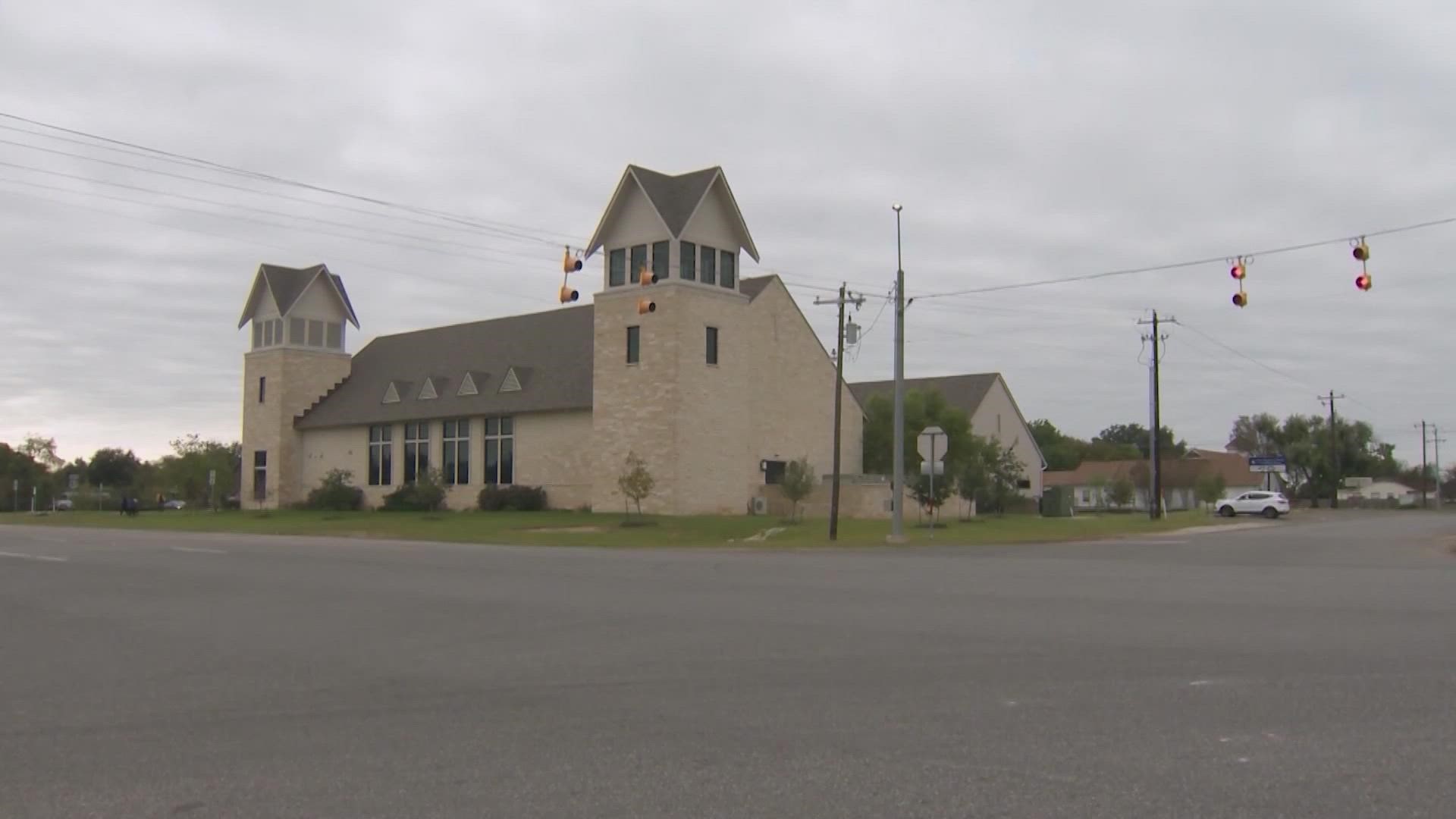SAN ANTONIO — The Department of Justice says a district judge was wrong to hold the U.S. Air Force 60 percent responsible for the Sutherland Springs mass shooting.
Federal attorneys asked an appellate court to overturn the lower court's ruling, using arguments that have excited groups like the National Rifle Association.
In February, Judge Xavier Rodriguez ordered the military to pay more than $230 million to the shooting's victims and relatives. The DOJ's appeal threatens those payments.
The Sutherland Springs shooter secured the weapon he used to kill 26 people after passing a background check at a gun retailer. The U.S. Air Force admits it failed to report a court martial conviction for domestic violence, which would've flagged the shooter and prevented him from purchasing a rifle.
Further investigation found the military routinely failed to report convictions and threats to the national database meant to ensure certain felons do not buy weapons.
Though it acknowledged the tragic mistakes, the DOJ argues Rodriguez misapplied the law when he mostly blamed the military for the shooting.
In a brief filed Monday, federal attorneys argued the shooter was "predisposed" to violence and likely would've hurt people even if he'd failed a background check.
"Frankly, the Biden DOJ has walked right into the NRA's trap," said Jamal Alsaffar, an attorney who represents roughly a third of the Sutherland Springs victims.
Alsaffar and others worry gun groups will use the case to bolster their argument that criminals will find ways to obtain weapons, even if laws are tightened.
On the same day the DOJ filed its appeal, the NRA's lobbying arm published a blog claiming the Biden administration admitted "the top priority of gun controllers doesn’t really stop violent criminals."
"Defending the suit has forced the government to admit inconvenient truths about the limitations of gun control," the post reads. "Those admissions essentially negate any further claims by the Biden Administration that firearm background checks have any essential role to play in public safety."
The Department of Justice could've avoided the messaging debacle by settling with victims and their relatives. Alsaffar says the feds have stopped negotiating, though.
"The ball is in their court," he added.

